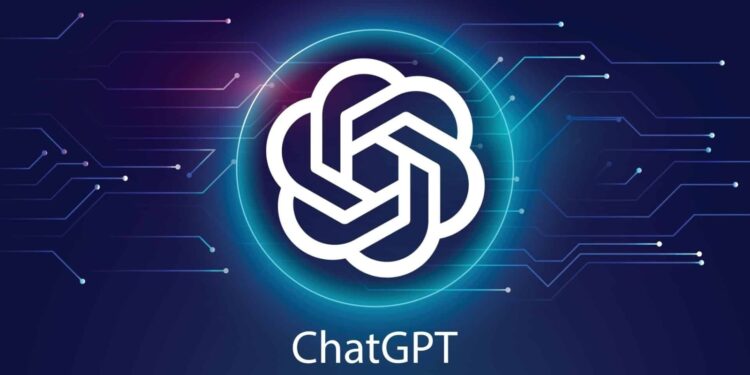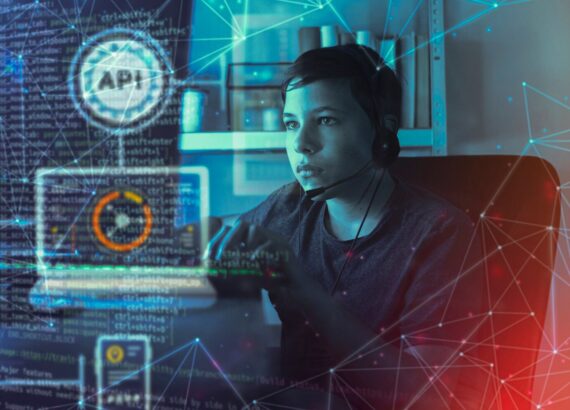Reason of Downside Of ChatGPT & Other AI Tools
Artificial Intelligence (AI) tools have rapidly advanced in recent years, offering innovative solutions and transforming various aspects of our lives. One such tool that has gained significant attention is ChatGPT, a language model developed by OpenAI. While ChatGPT and other AI tools hold immense potential, it is crucial to critically examine their limitations and downsides. This article explores the reasons behind the downsides of ChatGPT and other AI tools, shedding light on their challenges in understanding context and nuance, potential for biased or inappropriate responses, lack of accountability, handling sensitive topics, ethical concerns regarding data privacy, continuous monitoring and improvement, and the impact of overreliance on AI in human interactions. By delving into these aspects, we can better understand the complexities and potential risks associated with the use of AI tools in various domains. Stay informed and make informed decisions when utilizing AI tools for your business or personal needs.

1. Introduction to ChatGPT and other AI tools
ChatGPT and other AI tools have revolutionized the way we interact with technology. These tools use artificial intelligence to generate human-like responses to user queries, making conversations with machines more conversational and engaging. ChatGPT, in particular, has gained significant popularity due to its ability to carry out complex conversations and provide useful information.
Understanding the functionality of ChatGPT
ChatGPT works by using deep learning techniques to process and analyze large amounts of text data. It learns from a wide range of sources and try to generate coherent and contextually relevant responses based on the user’s input. The aim is to provide users with helpful and informative replies in a conversation-like manner.
Overview of other AI tools in the market
ChatGPT is not the only AI tool available in the market. There are various other tools, such as Xiaoice, Mitsuku, and Cleverbot, that offer similar conversational experiences. Each of these tools has its own strengths and weaknesses, catering to different user preferences and needs.
2. Limitations in understanding context and nuance
While AI tools like ChatGPT have made significant progress, they still struggle with understanding context and nuance in conversations. This limitation can lead to inaccurate or misleading responses.
Challenges in comprehending complex queries
AI tools may struggle to comprehend complex queries that involve multiple layers of context or require a deep understanding of specific topics. This limitation can result in responses that miss the mark or fail to address the user’s actual query.
Difficulty in recognizing sarcasm and humor
Sarcasm and humor are vital elements of human conversation, but AI tools often struggle to interpret them correctly. As a result, they may provide responses that are tone-deaf or miss the intended comedic effect, leading to awkward or frustrating interactions.

3. Potential for biased or inappropriate responses
Another downside of AI tools like ChatGPT is the potential for biased or inappropriate responses. These tools learn from vast amounts of data, some of which may contain biases or stereotypes, inadvertently leading to problematic outputs.
Influence of biased training data
If AI tools are trained on biased or discriminatory data, they may generate responses that perpetuate those biases. For example, if the training data contains more positive associations with certain demographics, the AI tool may unknowingly favor or promote those groups, reinforcing inequality.
The risk of promoting stereotypes or discrimination
AI tools lacking the ability to contextualize information can unintentionally reinforce stereotypes or discriminatory views. They may generate responses that reinforce harmful biases, exacerbating social divisions and perpetuating discrimination.
4. Lack of accountability and potential misuse
AI tools like ChatGPT raise concerns about accountability and potential misuse, as they operate autonomously and without human oversight. This lack of control can lead to irresponsible or malicious use of the technology.
Challenges in tracing responsibility for AI-generated content
When AI tools generate content, it becomes difficult to determine who is responsible for any inaccuracies, biases, or harmful statements. This lack of accountability raises ethical and legal concerns, particularly in cases where the generated content may cause harm or misinformation.
Instances of AI tools being exploited for malicious purposes
AI tools can be manipulated or exploited to spread misinformation, propaganda, or engage in harmful activities. Hackers or malicious actors may misuse AI-generated content to deceive users or manipulate public opinion, highlighting the need for robust safeguards and responsible use of these tools.
In conclusion, while AI tools like ChatGPT have undoubtedly transformed our interactions with technology, they still have limitations when it comes to understanding context, avoiding bias, and ensuring accountable use. Recognizing these downsides is crucial in order to use AI tools responsibly and to push for continued improvements in their functionality. After all, while AI may be impressive, nothing beats the wit and humanity of an actual, well-informed human being.
5. Challenges in Handling Sensitive or Controversial Topics
Difficulties in Providing Accurate and Unbiased Information
ChatGPT and other AI tools often face challenges when it comes to providing accurate and unbiased information, especially on sensitive or controversial topics. AI models may sometimes generate responses that are based on incomplete or inaccurate data, leading to misleading or incorrect information being shared. This can be particularly problematic when users rely heavily on AI tools for factual information.
Ethical Considerations When Dealing with Sensitive User Queries
Dealing with sensitive user queries raises ethical concerns for AI tools. These tools may encounter questions or requests that involve topics such as mental health, self-harm, or hate speech. Ensuring that AI models respond appropriately and responsibly to such queries is crucial. However, striking the right balance between offering support and avoiding potential harm can be challenging, as AI tools may not possess the empathy and understanding required in sensitive situations.
6. Ethical Concerns Regarding Data Privacy and Security
Collection and Storage of User Data by AI Tools
AI tools like ChatGPT rely on user interactions to enhance their performance, which involves collecting and storing user data. This raises concerns about data privacy and the extent to which user information is recorded and used. It is essential for AI developers to be transparent about their data collection practices and ensure they comply with relevant privacy regulations to safeguard user trust.
Safeguarding User Privacy and Preventing Data Breaches
AI tools must take precautions to protect user privacy and safeguard against the risk of data breaches. Implementing robust security measures and encryption techniques is crucial to prevent unauthorized access to user information. Additionally, clear policies regarding data retention and deletion should be in place to maintain user trust and confidence.

7. Need for Continuous Monitoring and Improvement
Importance of Ongoing Evaluation and Feedback Loops
To address the limitations and challenges associated with AI tools like ChatGPT, continuous monitoring and evaluation are essential. Regular assessment of the tool’s performance, including accuracy and reliability, enables developers to identify areas for improvement and take corrective measures. Incorporating user feedback and engaging with the community can also help refine and enhance the AI model over time.
Iterative Development to Address Identified Limitations
AI tools should undergo iterative development to address the limitations that arise during usage. This involves implementing updates and enhancements based on user feedback and identified shortcomings. By continuously iterating and refining the AI models, developers can strive to improve the reliability and effectiveness of the tools, ensuring they meet user expectations and deliver valuable experiences.
8. Overreliance on AI and Potential Impact on Human Interaction
Balancing the Role of AI with Human Judgment and Expertise
While AI tools like ChatGPT have their merits, it is important to strike a balance between relying on AI and valuing human judgment and expertise. Overreliance on AI can lead to the diminishing of human skills, creativity, and critical thinking. It is crucial to acknowledge the limitations of AI tools and ensure that human involvement remains integral to decision-making and problem-solving processes.
Potential Consequences of Diminished Human-to-Human Communication
As AI tools become more advanced, there is a concern that human-to-human communication may be impacted. Overdependence on AI interactions might reduce real conversations and interpersonal connections. It is important to actively foster and maintain human interaction to preserve empathy, emotional intelligence, and the richness of personal connections that AI tools cannot fully replicate.
Conclusion
Remember, while AI tools like ChatGPT offer exciting possibilities, it is essential to be aware of their limitations and address the challenges they present. By doing so, we can maximize their potential while ensuring they align with our ethical values and contribute positively to society.In conclusion, while ChatGPT and other AI tools offer remarkable advancements in language processing, it is important to acknowledge their inherent limitations and downsides. From understanding context to addressing bias and accountability, the challenges they face are significant. However, by recognizing these issues and actively working towards improving AI models, we can mitigate the downsides and ensure a more responsible and effective use of AI tools. It is essential to approach the development and deployment of AI with critical thinking, ethical considerations, and continuous monitoring, ultimately striving for a harmonious integration of AI technology that complements and enhances human interactions, rather than replacing them.

FAQ
1. Are AI tools like ChatGPT completely unreliable?
AI tools like ChatGPT are not completely unreliable, but they do have limitations and downsides. While they can generate impressive responses, they may struggle with understanding context, recognizing sarcasm, or providing accurate information on sensitive topics. It is important to use AI tools with caution and evaluate their responses critically.
2. Can AI tools like ChatGPT be biased?
Yes, AI tools like ChatGPT can be biased. They learn from vast amounts of data, which may contain inherent biases present in the training data. This can lead to biased or inappropriate responses. Developers and researchers are actively working on mitigating biases and improving the fairness and inclusivity of AI tools.
3. Should we be concerned about data privacy when using AI tools?
Yes, concerns about data privacy and security are valid when using AI tools. Some AI models, including ChatGPT, require access to user data to improve their performance. It is important for developers and organizations to prioritize data privacy, adopt robust security measures, and ensure transparency in data collection and usage practices.
4. Can AI tools replace human interaction entirely?
While AI tools have made significant advancements, they cannot replace human interaction entirely. AI tools like ChatGPT can assist in various tasks, but they lack the depth of human understanding, empathy, and intuition. Human-to-human communication remains essential for complex decision-making, nuanced discussions, and building meaningful connections. It is crucial to strike a balance between AI tools and human interaction for optimal outcomes.
Thank you for reading 🙂
If you want to build your website in an affordable price contact: www.nextr.in
Read this: How To Become A Software Engineer/Developer In 2023


















